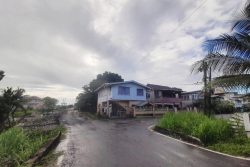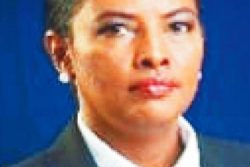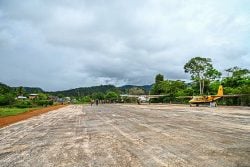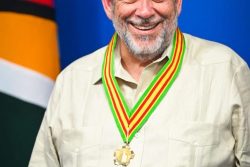Dear Editor,
Most will agree that cultural promotion, especially within diasporic communities, plays a critical role in maintaining and celebrating one’s cultural identity. For the Guyanese community in New York, events like the annual Labour Day celebrations serve as a platform for showcasing Guyana’s rich cultural heritage. Marlon Jacobs, popularly known as “Freedom Boss,” is one of the key promoters spearheading one aspect of these efforts. He has been a significant figure over the years organizing events promoting Guyanese artists and culture in the diaspora and locally. However, recent public disputes, particularly between Jacobs and a prominent political activist, seem to overshadow these efforts, resulting in calls for boycotts of his event aimed at promoting Guyanese culture.
Most will agree that the Labour Day celebrations in New York, which attract thousands of participants from across the Caribbean, offer a unique opportunity for Guyanese artists to showcase their talents on an international stage. These events allow artists to share their music, dance, art, and cuisine, thereby promoting Guyana’s culture and identity within a broader Caribbean context. Jacobs, through his events, has been instrumental in creating platforms for Guyanese artists to perform and gain visibility. His efforts have not only provided opportunities for artists to earn an income but have also contributed to promoting Guyana’s cultural brand in the diaspora. By giving artists the chance to showcase their work, Jacobs helps to ensure that Guyanese culture remains vibrant and relevant in a global world. This, in turn, strengthens the cultural ties between Guyana and its diaspora, fostering national pride and “unity.”
Unfortunately, cultural promotion can sometimes become entangled with politics, as seen in the public feud between Jacobs and a prominent political activist. The dispute, which centred on Jacobs’ Labour Day event, has led to calls for a boycott due to perceived government support for the activity. While political discourse is an integral part of any democratic society, it is essential to recognize that cultural events should be seen as opportunities for unity rather than division. The politicization of cultural events can have detrimental effects on the very communities they aim to serve. Boycotting events that provide a platform for Guyanese artists, not only deprives these artists of valuable opportunities, but also undermines efforts to promote Guyana’s culture on an international stage. Moreover, such boycotts can create divisions within the community as was seen in the Facebook comments, which can hinder the collective efforts to promote our national identity and support local talent. It is therefore crucial to separate political disagreements from cultural promotion to ensure that the latter can thrive.
It is important to note that promoters like Jacobs play a vital role in the success of cultural events. Organizing such events requires significant time, effort, resources, and dedication. Jacobs’ work in promoting Guyanese culture should be acknowledged and supported, especially given the challenges of organizing large-scale events in a foreign country. His efforts provide a valuable service to the Guyanese community. Jacobs’ events do contribute in some way to the economic well-being of some Guyanese artists, many of whom rely on such opportunities to earn a living. By supporting these events, the Guyanese community can help ensure the success of their artists, businesses and, by extension, the promotion of our national culture. It is essential to recognize the value of Jacobs’ and to support his efforts in promoting Guyanese culture, regardless of political disagreements. There is a time and a place for everything.
Sincerely,
Hon. Jermaine Figueira MP





